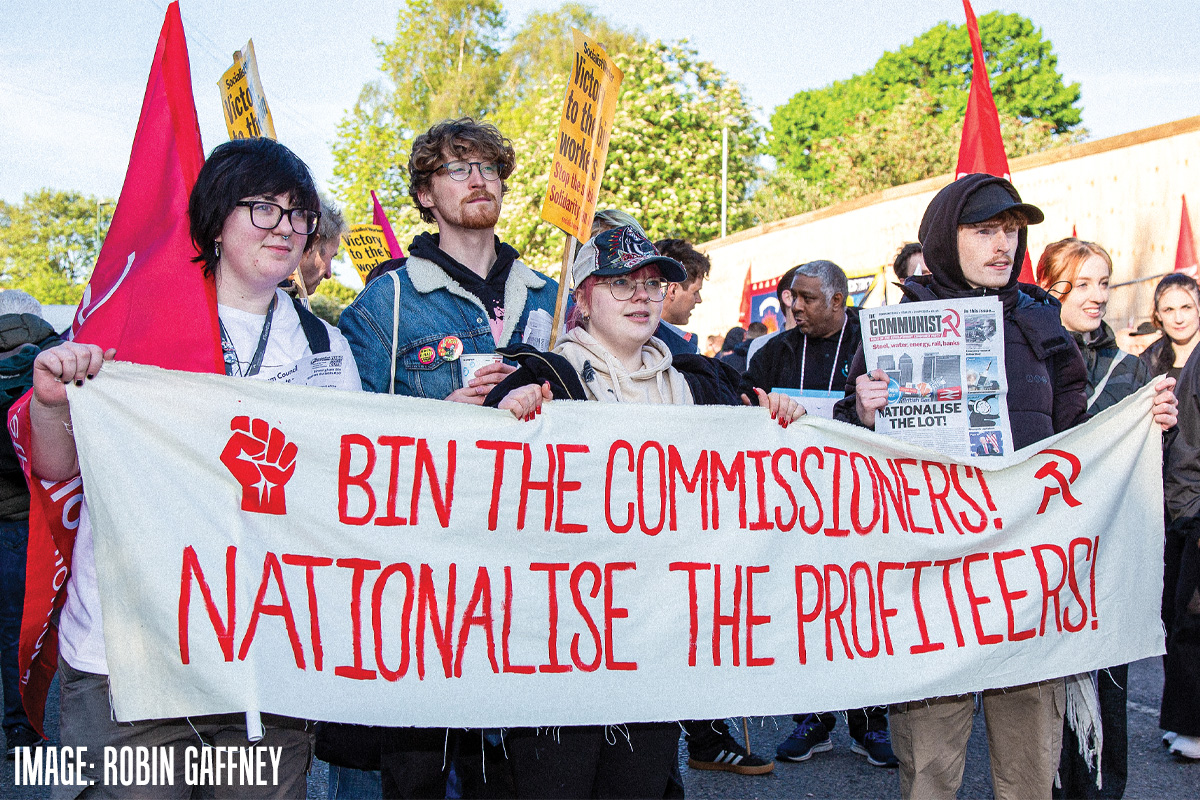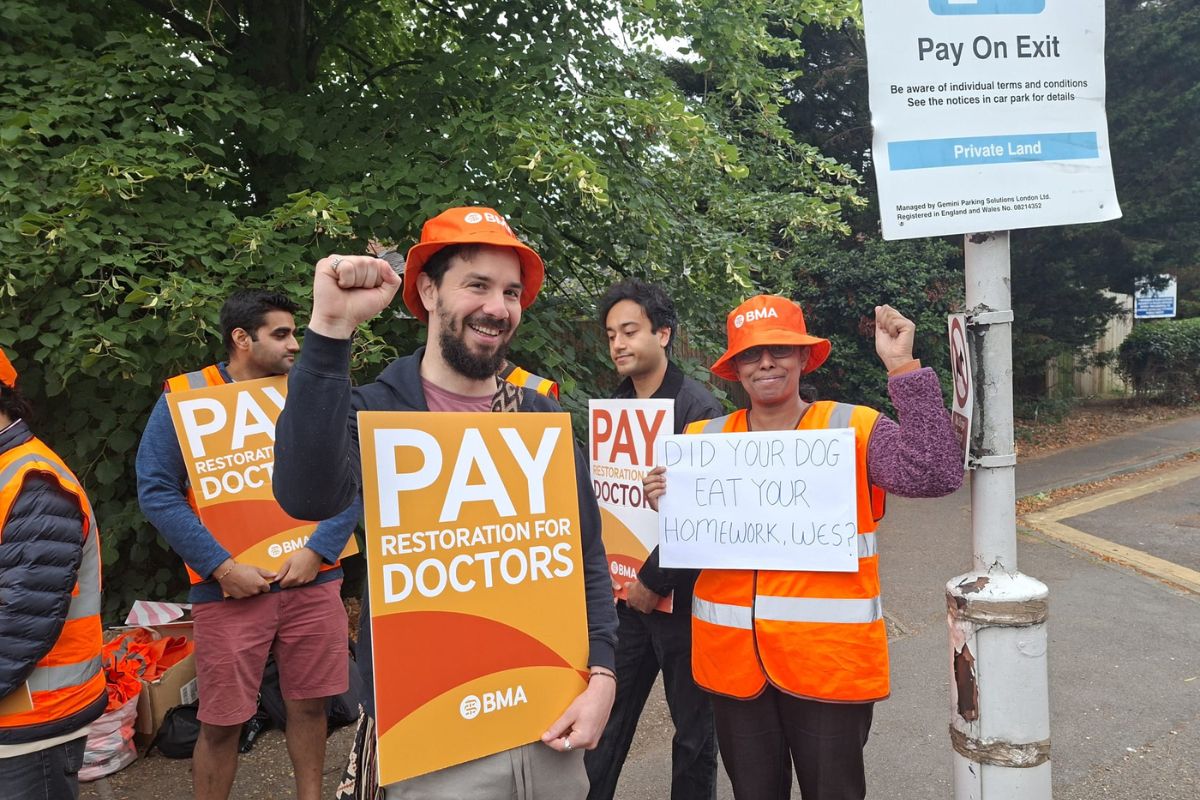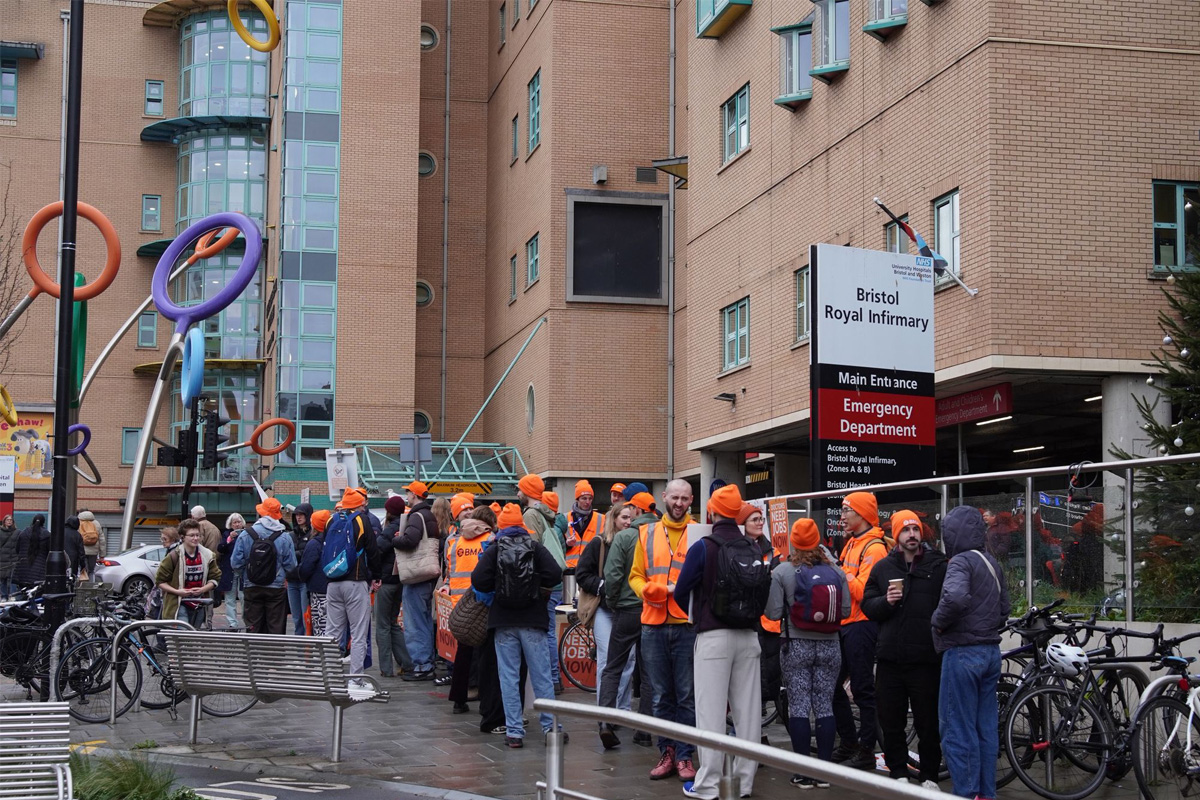Momentum is picking up amongst NHS workers, following five days of strike action by resident doctors in July.
The tone on picket lines – and from the BMA leadership – has been uncompromising. Defiant doctors have fought off a barrage of smears from Labour health secretary Wes Streeting, also echoed in the gutter press.
Health workers organised in Unison, meanwhile, have voted (70 percent) in favour of industrial action in an indicative ballot. This marks a resounding rejection of the pitiful 3.6 percent pay rise offered by Streeting.
Unite has won a similar consultative ballot for NHS staff, with 89 percent voting against the government’s “unacceptable” pay offer, and 95 percent against cuts.
Furthermore, members of the RCN, representing 170,000 nurses, have voted to reject the same offer on a 91 percent mandate.
The unrest amongst NHS workers is palpable.
Common enemy
This demolishes Labour’s rhetoric about being a “party of change”, supposedly intent on “fixing the NHS”.
Instead, our health service continues to face brutal austerity, with some trusts being asked to slash spending by as much as 12 percent.
As a direct result, according to some estimates, 500 people die weekly due to A&E queues.

It is the urgency of this situation – the situation that we are confronted with every day at work – that underpins health workers’ resolve.
To win, we first have to understand what we are up against.
Labour’s attacks on workers go beyond the NHS. Austerity is rampant everywhere. Public sector workers across the board, including teachers and binworkers, are seeing their real pay decline and their working conditions worsen.
These cuts are not ‘ideological’ or a ‘political choice’, but are the product of the deep crisis of capitalism, which is felt all the more acutely in Britain.
To balance its books, in order to appease the bankers and billionaires, the government is desperately cutting every last penny. And in a vain attempt to shore up Britain’s position on the world stage, it is spending billions on militarism instead of medicine.
Workers are being made to pay for a crisis we did not create, through attacks on our wages and conditions. Deteriorating access to healthcare is just one such attack.
The demands of each union are therefore not unique or unrelated. Nor are they limited to pay. We are fighting for the future of the NHS as a system that is free and universal, staffed by decently-paid and fairly-treated staff.
In our fight, we have a common enemy: the bosses and fat-cats who orchestrate austerity and the privatisation of the NHS. They have much to gain from running the country’s health into the ground.
One struggle
In the last wave of NHS strikes, the Tories were able to sap the energy out of the movement through the tried-and-tested method of divide-and-conquer.
Single unions, isolated from each other in separate struggles, are easier to pressure into accepting weak deals.
In order not to be picked off by Starmer’s government, union by union, we need to unite our strikes.

We need cross-sector pickets, led by strike committees representing all NHS workers. And we need a common programme of demands for the whole NHS, as opposed to individual sectors. This should include full-pay restoration and the reversal of all the cuts.
This programme should boldly declare to the government: “You say there is no money. We’ll help you find it. It sits in the private accounts and vaults of the largest monopolies and banks. You can start with the expropriation of all private health assets, and with the immense pharmaceutical monopolies that bleed the NHS dry.”
We need more than a defensive fight. We need to go on the offensive.
An NHS-wide strike would be a rallying call to the whole labour movement – one that could galvanise increasing numbers of public sector workers, in a joint campaign against austerity and privatisation.
Mass militant pressure from below is needed to force the government’s hand. And in turn, the organisation and mobilisation of such a mighty force requires boldness on the part of the union leaders.
Under Labour, the NHS is increasingly vulnerable. Government ministers merely see the public healthcare system as a drain on the country’s coffers. For them, private sector profits and military spending matter more than staff and patient wellbeing.
But all across the NHS, workers are burning to fight back.
We work shoulder-to-shoulder on substandard wards, trapped between low pay and overwork. We face rota gaps and employment bottlenecks, while other colleagues leave work due to burnout.
It is about time we stood shoulder-to-shoulder on picket lines, fighting for socialist policies to save our NHS.
Cambridge
On 25 July, five members of the Cambridge RCP joined the BMA picket line outside Addenbrooke’s Hospital. Alongside the doctors stood patients and other union representatives, eager to show solidarity with their struggle.
The mood was positive, in spite of the bosses’ media mobilising against the very people whom they had sung praises of, not long ago, for their tireless work during the pandemic.
One of the bosses’ rags ran a headline that said junior doctors must ‘feel pain’! But with their real-terms pay cuts, and with their unbearable workloads on meagre wages, I’d say they’re already being made to feel pain!
View this post on Instagram
That is the message the boss’ media directs against any working class struggle: we must suffer to save their system.
But the truth is that our suffering is only prolonged and deepened by accepting their cuts. A report published by the BMA last year showed that a third of doctors were considering leaving the country due to pay and workloads. So, the reality is that these ‘tough, grown-up’ decisions are only killing our NHS and opening it up to the private sector ghouls.
This was discussed heavily on the picket line. The doctors there were keenly aware that they are not only fighting for decent living and working conditions, but also to stop the NHS collapsing due to staffing.
There was no faith in the so-called ‘Labour’ government to help them, and all strikers were convinced that the only way to win was to escalate further, including coordinating industrial action across hospital departments, and some even spoke of indefinite strike action.
Strikes are a powerful thing in that they show us where the real power sits in society: our hands, workers’ hands. Despite the drawn out conflict and constant attacks, everyone there was willing to carry on the struggle to get what they deserve.
Communists support striking doctors, and all other hospital staff wholeheartedly, as well as the call to coordinate action across all unions, to defeat Streeting and his private sector pals!
Jo Bunke
Southampton
Four RCP members from Southampton joined the picket line outside Southampton General Hospital.
We found out that doctors from Poole and Dorchester came down to Southampton. Our comrades struck up conversation with lots of them, including one of our newest members, for whom this was her first picket line!
View this post on Instagram
Workers enjoyed their conversations with this young person who came in solidarity, just having finished her A-levels. It was an invaluable first experience to discuss politics, including Corbyn’s new party, on the picket line.
Discussing the way forward, one doctor said it would be great if nurses came out jointly with doctors on strike.
Gavin Rebeiro, hospital worker (personal capacity)
Oxford
Two Oxford RCP members joined 25-30 BMA members, including doctors who came down from Wycombe and Reading.
On the surface, this is just about pay restoration. Below the surface, there are a thousand and one grievances that the strikers talked to us about.
Some deplored the fact that they are expected to pay for their training and parking. One doctor estimated that he paid £4,000 on exams and training. This is on top of being forced to attend mindfulness lessons, instead of using the allocated learning budget on useful lectures.
They may or may not be offered night work, with their salary varying by as much as a third each month, making budgeting nearly impossible
The resident doctors were, to say the least, not fans of the Starmer government. Their experiences have soured their originally positive feelings towards Labour – begot by virtue of Labour not being the Tories.
Now these experiences fuel a scepticism in general towards newcomers such as Reform, but also Corbyn’s new party – showing how vital it is for “Your Party” to offer a bold and unapologetic programme to convince workers that an alternative is possible.
Overwhelmingly the view is positive on the picket grounds, with a majority of cars and passerbys honking and cheering in support.
Hugh Nankervis






